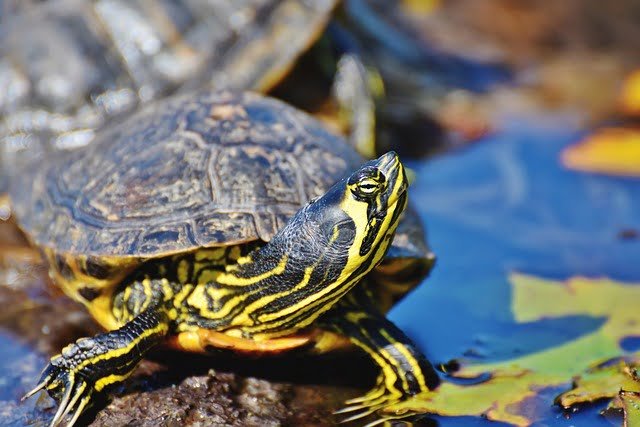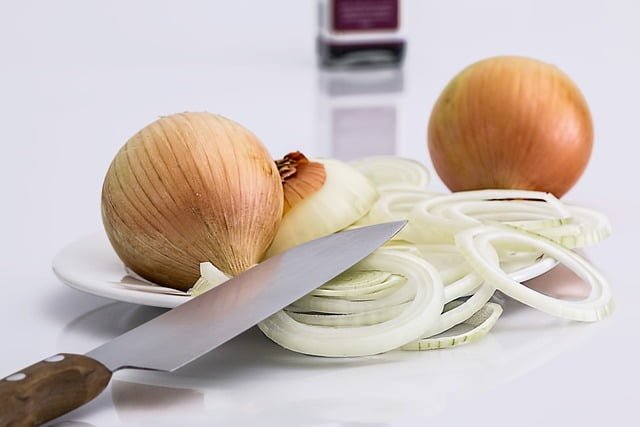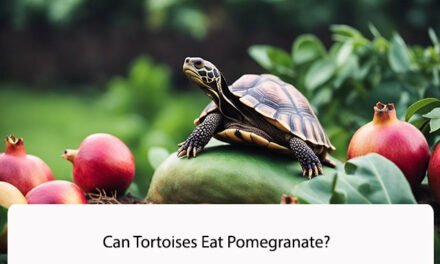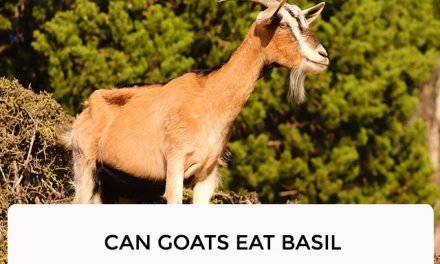Tortoises are fascinating creatures that make great pets. They have a herbivorous diet and enjoy eating a variety of vegetables and fruits. However, as a responsible pet owner, it is important to know which foods are safe for your tortoise to eat. Onions are a common ingredient in many human meals, but can tortoises eat onions?
Onions are a member of the allium family, which also includes garlic, leeks, and chives. These vegetables contain a compound called thiosulphate, which can be toxic to some animals. While onions are not toxic to tortoises, they should still be avoided. Onions can cause digestive issues, such as diarrhea and vomiting, and may also cause anemia if consumed in large quantities.
It is important to note that every tortoise is different, and what may be safe for one may not be safe for another. As a general rule of thumb, it is best to stick to a varied diet of leafy greens, vegetables, and fruits that are safe for tortoises to eat. If you are unsure about a particular food, it is always best to consult with a veterinarian who specializes in reptile care.

Understanding Tortoise Diet
When it comes to feeding tortoises, it’s important to understand their natural diet. Tortoises are herbivores, which means they eat only plant-based foods. Their diet should consist mainly of leafy greens, vegetables, and fruits. It’s important to note that not all fruits and vegetables are safe for tortoises to eat.
Tortoises have a unique digestive system that requires a high-fiber diet. They also require a diet that is low in protein and fat. Foods that are high in protein and fat can cause health problems for tortoises, such as kidney and liver damage.
Leafy greens should make up the bulk of a tortoise’s diet. Some good options include kale, collard greens, dandelion greens, and mustard greens. Vegetables such as carrots, squash, and sweet potatoes can also be included in a tortoise’s diet.
Fruits should be given in moderation, as they are high in sugar. Some good options include apples, berries, and melons. It’s important to avoid fruits that are high in acid, such as oranges and lemons, as they can cause digestive problems.
In addition to a healthy diet, tortoises require access to clean water at all times. They also need access to natural sunlight or UVB lighting to help them absorb calcium, which is essential for healthy shell growth.
Overall, understanding a tortoise’s natural diet is essential for their health and well-being. By providing them with a balanced diet that meets their nutritional needs, we can help ensure they live a long and healthy life.
Can Tortoises Eat Onions?
As tortoise owners, we often wonder if our pets can eat the same foods that we do. Onions are a common vegetable in many households, but can tortoises eat onions?
The answer is no, tortoises should not eat onions. Onions contain compounds that can be harmful to tortoises, especially in large quantities. These compounds can cause anemia and damage to the red blood cells, which can be fatal for tortoises.
It is important to note that all parts of the onion plant, including the bulb, leaves, and stems, should be avoided. Cooked or raw onions should not be fed to tortoises, even in small amounts.
While onions may be a tasty addition to our meals, they are not suitable for tortoises. As responsible pet owners, we should stick to feeding our tortoises a diet that is specifically designed for their nutritional needs. This includes a variety of vegetables, fruits, and leafy greens that are safe and healthy for our tortoise friends.
Potential Risks of Feeding Onions to Tortoises
Digestive Issues
Onions contain a high amount of fructans, which can be difficult for tortoises to digest. When tortoises consume onions, they may experience digestive issues such as bloating, gas, and diarrhea. These symptoms can be uncomfortable and potentially harmful to the tortoise’s health.
Nutritional Imbalance
Feeding onions to tortoises can also cause a nutritional imbalance in their diet. Onions are high in sulfur compounds, which can interfere with the absorption of other important nutrients such as calcium. This can lead to weakened bones and shell deformities in tortoises.
It is important to note that even small amounts of onions can be harmful to tortoises. As responsible pet owners, we should avoid feeding onions to our tortoises to prevent potential health issues. Instead, we should focus on providing a balanced and varied diet that meets all of their nutritional needs.

Safe Foods for Tortoises
As responsible pet owners, we want to ensure that our tortoises are getting the best possible nutrition. It’s important to know which foods are safe for tortoises to eat and which should be avoided. In this section, we will discuss some safe foods for tortoises, including leafy greens, vegetables, and fruits.
Leafy Greens
Leafy greens are an excellent source of nutrition for tortoises and should make up a significant portion of their diet. Some safe leafy greens for tortoises include:
- Collard greens
- Dandelion greens
- Endive
- Escarole
- Mustard greens
- Turnip greens
Make sure to rinse the greens thoroughly before feeding them to your tortoise. You can chop them up into small pieces or leave them whole, depending on the size of your tortoise.
Vegetables
Vegetables are another important component of a tortoise’s diet. Some safe vegetables for tortoises include:
- Bell peppers
- Carrots
- Squash
- Zucchini
- Cucumber
- Sweet potato
Again, make sure to rinse the vegetables thoroughly before feeding them to your tortoise. You can chop them up into small pieces or leave them whole.
Fruits
Fruits should be given to tortoises in moderation, as they are high in sugar. Some safe fruits for tortoises include:
- Apples
- Berries
- Grapes
- Mango
- Papaya
- Watermelon
Make sure to remove any seeds or pits from the fruit before feeding it to your tortoise. You can chop the fruit up into small pieces or leave it whole.
Remember to always provide fresh, clean water for your tortoise and to avoid feeding them any foods that are toxic or harmful to their health.
Unsafe Foods for Tortoises
As responsible tortoise owners, we should be aware of the foods that are unsafe for our pets to consume. Here are some of the foods that we should avoid feeding our tortoises:
Foods High in Oxalates
Oxalates are compounds that bind with calcium in the body, leading to the formation of kidney stones. Tortoises are particularly susceptible to this problem, so we should avoid feeding them foods that are high in oxalates, such as:
- Spinach
- Rhubarb
- Beet greens
- Swiss chard
- Parsley
- Kale
Foods High in Phosphorus
Tortoises require a calcium-to-phosphorus ratio of 2:1 to maintain healthy bones and shells. Feeding them foods that are high in phosphorus can upset this balance, leading to health problems. Some foods that are high in phosphorus include:
- Meat
- Dairy products
- Nuts
- Seeds
Foods High in Protein
Tortoises are herbivores and do not require a lot of protein in their diet. Feeding them foods that are high in protein can lead to health problems, such as kidney damage. Some foods that are high in protein include:
- Meat
- Eggs
- Dairy products
- Beans
- Nuts
Foods High in Fat
Tortoises do not require a lot of fat in their diet. Feeding them foods that are high in fat can lead to health problems, such as obesity. Some foods that are high in fat include:
- Avocado
- Cheese
- Nuts
- Seeds
By avoiding these foods, we can help ensure that our tortoises stay healthy and happy.
Conclusion
After researching and analyzing the available information, we can conclude that tortoises should not be fed onions. Onions contain compounds that can be harmful to tortoises and can lead to health problems if consumed in large quantities.
While small amounts of onions may not cause immediate harm to tortoises, it is best to avoid feeding them onions altogether. Instead, we recommend providing them with a well-balanced diet that includes a variety of vegetables, fruits, and leafy greens.
It is also important to note that tortoises have specific dietary needs that vary depending on their species, age, and size. Therefore, it is best to consult with a veterinarian or a reptile expert to ensure that your tortoise is receiving the proper nutrition.
In summary, while onions may seem like a harmless treat for tortoises, they should be avoided due to their potential to cause harm. By providing your tortoise with a balanced diet and consulting with a professional, you can ensure that your pet stays healthy and happy.

Frequently Asked Questions
What vegetables are safe for tortoises to eat?
Tortoises are herbivores and require a diet that is rich in fiber, vitamins, and minerals. Some safe vegetables for tortoises to eat include dark leafy greens, such as kale and collard greens, as well as carrots, squash, and bell peppers. It’s important to avoid feeding your tortoise vegetables that are high in oxalic acid, such as spinach and beet greens, as well as vegetables that are high in goitrogens, such as broccoli and cauliflower.
Are onions safe for tortoises to eat?
Onions are not safe for tortoises to eat. Onions contain a compound called thiosulphate, which can cause anemia in tortoises. Anemia can lead to weakness, lethargy, and even death. It’s important to avoid feeding your tortoise any foods that contain onions, including onion powder and onion-flavored foods.
What are some foods that tortoises should avoid?
In addition to onions, there are several other foods that tortoises should avoid. These include foods that are high in fat, such as cheese and fatty meats, as well as foods that are high in sugar, such as fruits and sweetened treats. Tortoises should also avoid foods that are high in salt, such as processed foods and table scraps.
Can tortoises eat garlic?
Garlic is not toxic to tortoises, but it’s best to avoid feeding your tortoise garlic. Garlic can irritate the digestive system and cause stomach upset in some tortoises. If you do decide to feed your tortoise garlic, it’s important to do so in moderation.
What are some of the favorite foods of tortoises?
Tortoises have a varied diet, but some of their favorite foods include dark leafy greens, such as kale and collard greens, as well as dandelion greens, endive, and escarole. Tortoises also enjoy a variety of fruits, including strawberries, raspberries, and melons.
Can Russian tortoises eat green onions?
No, Russian tortoises should not eat green onions. Green onions, like onions, contain thiosulphate, which can cause anemia in tortoises. It’s important to avoid feeding your tortoise any foods that contain green onions, including green onion powder and green onion-flavored foods.





